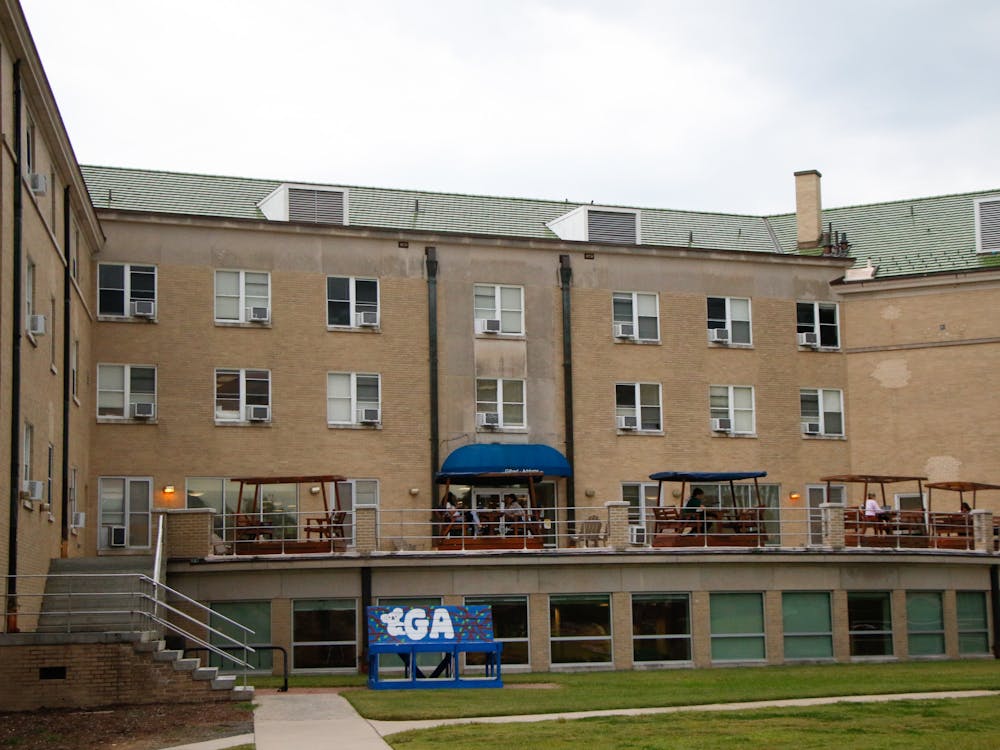The University is investigating two incidents of vandalism in Gilbert-Addoms dorm on East Campus and one in Keohane 4A — including a number of ripped-out fire exit signs and a broken patio chair, as well as an “emptied” fire extinguisher and hallway wall damage, respectively.
According to a Wednesday email from Keohane Quad Residence Coordinator Sam Hodges to the quad’s residents, the University has “obtained video and partial pictures of the students responsible” and is “in the process of identifying the culprits.” He noted that for those who committed the acts, “coming forward could result in some leniency.”
He also explained that the University can use security cameras to identify students “engaging in destructive behaviors.”
The University is requesting more information from the community on all three incidents.
“Incidents of vandalism not only impact the residents of the space but also necessitate additional attention from our facilities and housekeeping teams,” wrote Jill Solomon, associate dean for East Campus residence life, in a Thursday email to The Chronicle. “We encourage everyone to maintain a respectful shared living environment.”
Vandalism falls under the property/facilities/services section of the Duke Community Standard, which notes that “damage, destruction or defacement of the property of another” may be subject to disciplinary action. The Standard does not specify the exact disciplinary actions associated with acts of vandalism.
According to Solomon, when incidents of vandalism occur, Residence Life files an incident report to the University and contacts the residence community to request further information.
Dane Wagner, residence coordinator for GA and Southgate, sent an Oct. 7 email to GA residents describing the vandalism and asked the community for any information on the incidents. Wagner provided students the option of sliding an anonymous note under the door of his office.
“With concerns like this in the past when we couldn’t identify who was responsible, we have utilized a community charge that was shared across the building,” he wrote.
Wagner noted that while the University is not currently imposing a community charge, any information received could help “prevent this from happening.”
“Preventing vandalism requires a community effort. It is important for the entire community to hold one another accountable, respect one another and our shared facilities,” Solomon wrote.
Get The Chronicle straight to your inbox
Sign up for our weekly newsletter. Cancel at any time.

Ananya Pinnamaneni is a Trinity first-year and a staff reporter for the news department.

